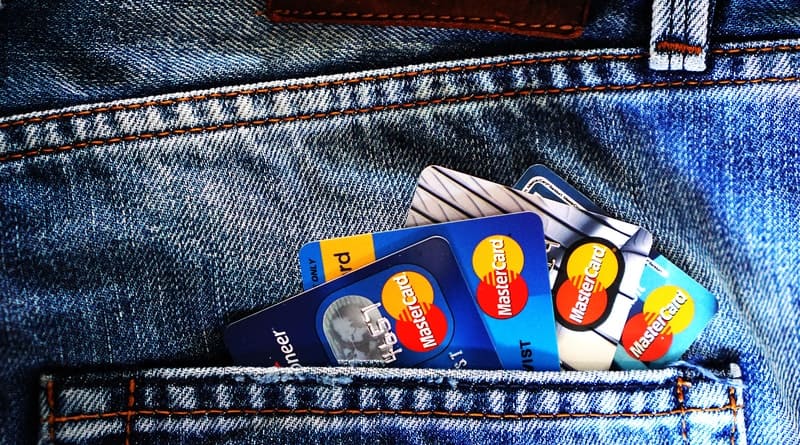How Many Credit Cards Does a Person Really Need?

The average American has two or more credit cards, studies have found. But how many should you have?
With all the offers, ads, commercials, and letters in the mail offering your travel and money-back rewards, the world of credit can be intimidating. While credit can be a useful tool in achieving an overall sense of financial well-being, it can also hurt you if you don’t approach it with the right attitude.
That right attitude begins with finding the perfect number of credit cards to keep in your wallet. Spoiler alert: That number truly depends on the individual, but here are a few thoughts to get you started:
If you’re just starting out
Those new to the world of credit cards should start with one credit card. Aim for one that low-interest rates, low fees, and decent rewards programs.
Mountain America Credit Union credit cards are a great option to start with. The Visa Platinum Card offers low-interest rates and is perfect for consumers who are interested in saving money and keeping monthly payments low.
If you’re a responsible, experienced spender
Responsible spenders can choose to expand their credit portfolio for a number of different reasons. Maybe you want to improve your FICO score, or you’re looking to earn a specific type of rewards.
Using multiple credit cards could positively impact your FICO score by helping improve your debt-to-credit utilization ratio—or how much debt you’ve accumulated on your credit cards divided by the credit limit on the sum of your accounts.
And if you travel a lot, a credit card with travel or air miles rewards could help you save money in the long run. You earn points and can trade those points in on travel rebates, gift cards, event tickets, and I.D. theft protection services. Some will actually give you cash back on all purchases — no fuss or extra steps.
Either way, you need to be smart about how you go about choosing your next credit card. Add one at a time, and reevaluate your use each year to make sure you’re getting the most out of it.
Kelly Albiston, SVP digital banking at Mountain America Credit Union adds, “If you are disciplined in bringing your balance to $0.00 each month, having a good mix of cards with rewards that fit your individual lifestyle is a huge advantage in maximizing benefits for everyday spending. You need a good aggregation system to keep track of the spending across multiple cards as we have in our online branch. More cards mean more accounts to manage, but you can do it if you have the right tools. You also help your credit score by keeping your revolving available credit well above the credit you have in use, but the key is to practice discipline to avoid finance charges. “
If you’re about to make a big purchase
If you’re looking to purchase a car or home, the correct number of credit cards to have is the number you currently have in your wallet. Opening a new credit account within six months of making a big purchase can cause an inquiry, which will drop your score. A lower score could mean you pay more on that vehicle or home.
Hold out until after the purchase to open a new account.
If you’re in debt
Similarly, you shouldn’t look to open new credit cards if you’re struggling to pay off debt. Switch to spending on a debit card or using cash until you’ve paid it off.
The only time you should consider a new card when you’re in debt is to make a balance transfer — and that’s only a good idea if you know you can pay off the debt in the first year, otherwise, you risk paying even higher interest rates.
What's Your Reaction?
Newly middle-aged wife of 1, Mom of 3, Grandma of 2. A professional blogger who has lived in 3 places since losing her home to a house fire in October 2018 with her husband. Becky appreciates being self-employed which has allowed her to work from 'anywhere'. Life is better when you can laugh. As you can tell by her Facebook page where she keeps the humor memes going daily. Becky looks forward to the upcoming new year. It will be fun to see what 2020 holds.



